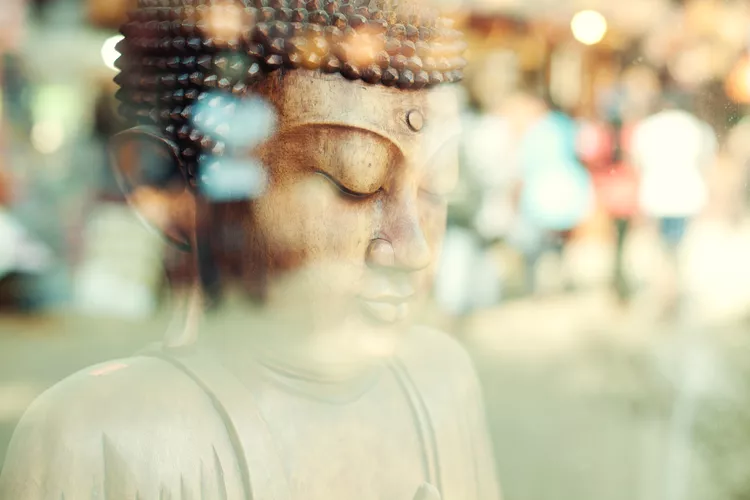Summary
Buddhism and Cultural Sensitivity in Myanmar
To go by Jim Croce, “You don’t tug on Superman’s cape; you don’t spit into the wind; you don’t pull the mask off that ol’ Lone Ranger.” And to go by recent events in Myanmar, you don’t take the Buddha’s image in vain.
A number of foreigners have made that mistake and paid dearly. Most recently, a Spanish tourist was reprimanded around one of Bagan’s temples when monks spotted a tattoo of the Buddha on his calf. In a similar case, a Canadian tourist was arrested in Inle Lake after a local noticed the Buddha’s face tattooed on his leg. Both were immediately expelled from Myanmar “for their safety.”
Such incidents shed light on the uncomfortable reality of travel in Myanmar. Foreign travelers might find themselves lulled by the casual use of Buddha iconography in other cultures only to discover that Myanmar enforces much stricter regulations. Furthermore, the country’s complex relationship with Western visitors has generated a climate where transgressions are met with severe consequences.
The Case of the Headphones-Wearing Buddha
If the Buddha Bar could do it, why couldn’t VGastro join in? To promote their establishment on social media, New Zealander Philip Blackwood posted a picture of the Buddha wearing headphones—his portrayal, likely paired with a psychedelic backdrop, suggested he was indulging in something trippy.
The picture quickly went viral for all the wrong reasons. Outraged locals shared the image online, leading to protests outside the VGastro bar, notably attended by monks affiliated with the anti-Muslim movement elsewhere in Myanmar. Local authorities acted swiftly; Blackwood was arrested along with the Burmese owner and manager in December 2014, landing them in Yangon’s notorious Insein Prison.
“During the interrogation session, Mr. Philip, who runs the bar predominantly, mentioned he posted the image online to promote the venue,” remarked Lt-Col. Thien Win, Bahan police’s deputy-superintendent, in communication with Irrawaddy magazine. “He believed that using the Buddha in ads was a contemporary trend, aiming to grab attention.”
In prison, Blackwood faced significant challenges. As a foreign detainee, he did not receive any visitors, and four local attorneys declined to take on his case, one citing police intimidation.
In March 2015, Blackwood and his Burmese counterparts were sentenced to two years under articles 295 and 295(a) of the Myanmar Penal Code, which penalize “insulting religion” and “hurting religious feelings.” An additional six months was imposed for breaching zoning regulations. Ultimately, Blackwood was released in late January the following year and promptly traveled back to New Zealand.
The Case of the Buddha Leg Tattoos
In contrast, Jason Polley and Cesar Hernan Valdez encountered relatively less severe repercussions. Polley, a Canadian professor and devoted Mahayana Buddhist, stated in an interview with CBC News that he obtained a tattoo of the Buddha on his leg to signify a “pillar of support.”
However, some locals viewed the tattoo differently. While visiting Myanmar in July 2014, a Burmese citizen photographed Polley’s leg and angrily posted it on Facebook, drawing swift and unwelcome attentions similar to the Blackwood incident.
The placement of Jason’s Buddha tattoo was treated as disrespectful. Much like their Thai and Balinese counterparts, many Burmese harbor discomfort towards depictions on lower body parts, and the casual sight of the Buddha etched on a male’s leg sparked outrage among conservative Buddhists.
The authorities were notified and caught up with Polley at Inle Lake. He and his girlfriend were quickly transported to Yangon International Airport, a 15-hour trip. Despite intervention from Chinese Embassy officials in Hong Kong, the couple decided to depart, with Polley’s girlfriend, Margaret Lam, stating, “We thought it safest to leave, given the disinformation about Jason circulating in Myanmar,” in an interview with the South China Morning Post.
Two years later, Cesar Hernan Valdez was detained in Bagan after a monk reported his Buddha tattoo to the tourist police. Similar to Polley’s experience, Valdez was also detained, taken to Yangon, and subsequently sent home.
“We haven’t any reason to deport them,” said Ministry of Religious Affairs and Culture official Aung San Win, “We just encourage them to consider their safety as some might perceive the tattoo on his leg as offensive to the religion,” relayed in statements.
A Rising Tide of Nationalism in Myanmar
It is easy to draw comparisons between these cases and Thailand’s intolerance towards insults directed at their monarchy. Similarly, Buddhism is at the heart of Burmese national identity.
Analogous to the Thai Monarch, the Buddha’s image acts as a rallying point for specific interest groups. As lese majeste trials in Thailand have increased amidst political turmoil, prosecutions in the name of Buddhism appear to escalate concomitantly with burgeoning Burmese nationalism.
Nationalist Buddhist organizations, including the 969 Movement and Ma-Ba Tha, have gained substantial grassroots backing to enact laws impinging on religious liberties in Myanmar; for example, Buddhist women are prohibited from wedging non-Buddhists, per recently approved legislation.
The motives of these groups intersect nationalism with religious fervor, placing Westerners like Blackwood and Polley in precarious positions. Given Myanmar’s historical grievances stemming from prolonged colonial rule, Westerners who trivialize their deep-seated beliefs are often met with hostility.
Lessons Learned the Hard Way
This reflection is not intended to vilify the Westerners involved, who seem to act out of ignorance regarding Myanmar’s stance on religious sensitivities. In addition, it is essential to recognize that timing matters; offenses in previous years may not have carried the same weight, yet current national sentiments in Myanmar have undergone notable changes.
It may be challenging to accept, but a heightened distrust of foreigners clearly influences such incidents. While many Burmese open their arms to tourists, not all locals share the same sentiments. This reality holds true not only in Southeast Asia but particularly in Myanmar: the locals are sensitive to missteps by foreigners, and public outrage can spread swiftly on platforms like Facebook. For instance, Polley remained oblivious to the stir his tattoo caused until local officials informed him, “You do realize you’re a Facebook sensation in Myanmar?”
Travelers should bear one key lesson in mind: never take your host country’s beliefs lightly. This caution applies to destinations ranging from Cambodia to Indonesia, as many locals draw a distinct line concerning actions that undermine their religious convictions.
Contrary to practices in the United States and several Western secular nations, numerous Southeast Asian countries maintain a designated state religion, either by law or in practice. Myanmar, Thailand, and Cambodia all enforce legal frameworks recognizing Buddhism’s special standing within society, while communist nations like Laos and Vietnam still predominantly uphold Buddhist traditions.
This reality signifies that harming local religious sentiments often incurs legal ramifications. Therefore, possessing a foreign passport might not bolster your defense—in fact, it could hinder it. In dire situations, local lawyers may outright refuse to handle your case, as seen with Philip Blackwood’s ordeal.
To navigate Myanmar—or the broader region—safely, consider these practical recommendations:
- Avoid discussions regarding religion with locals.
- Keep all religious symbols (from any faith) concealed.
- Show immense respect toward local religious images, including Buddha images in temples and Buddha-related souvenirs.





